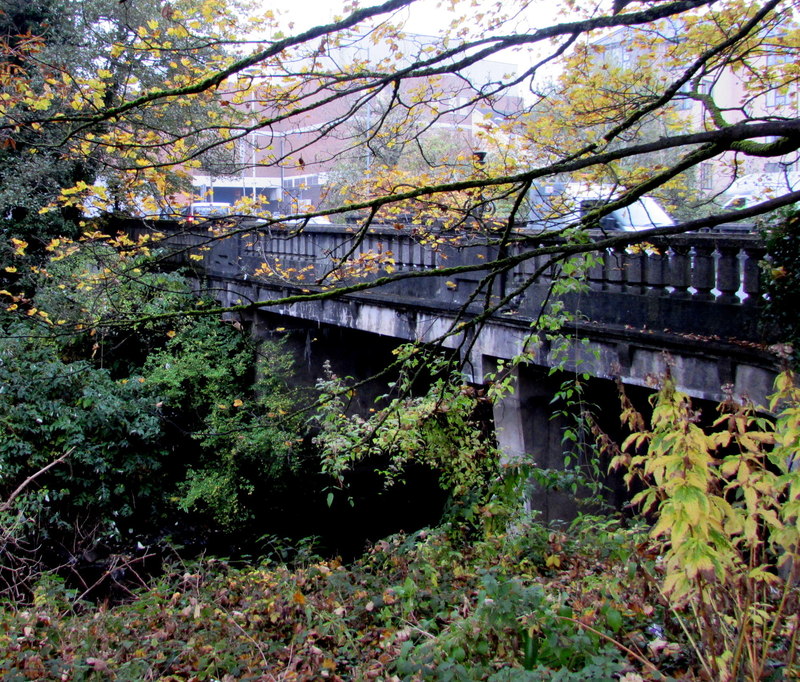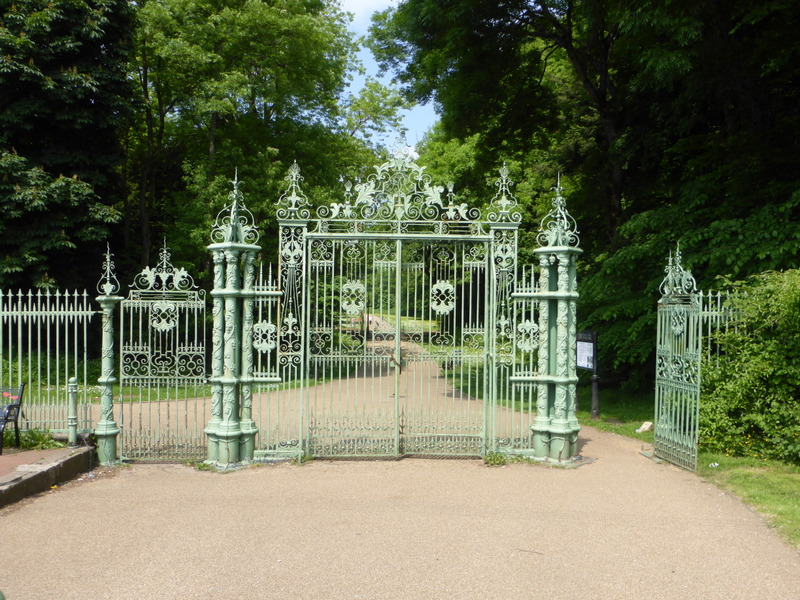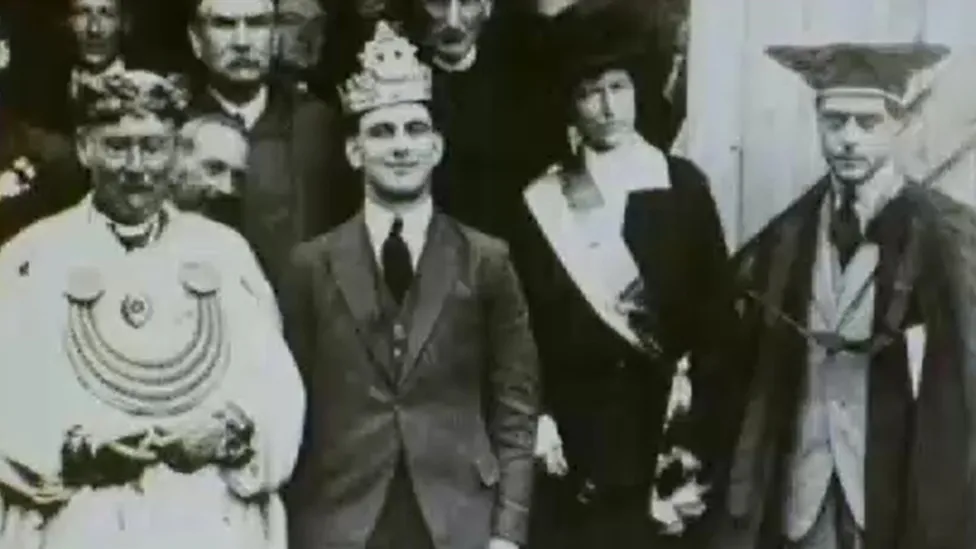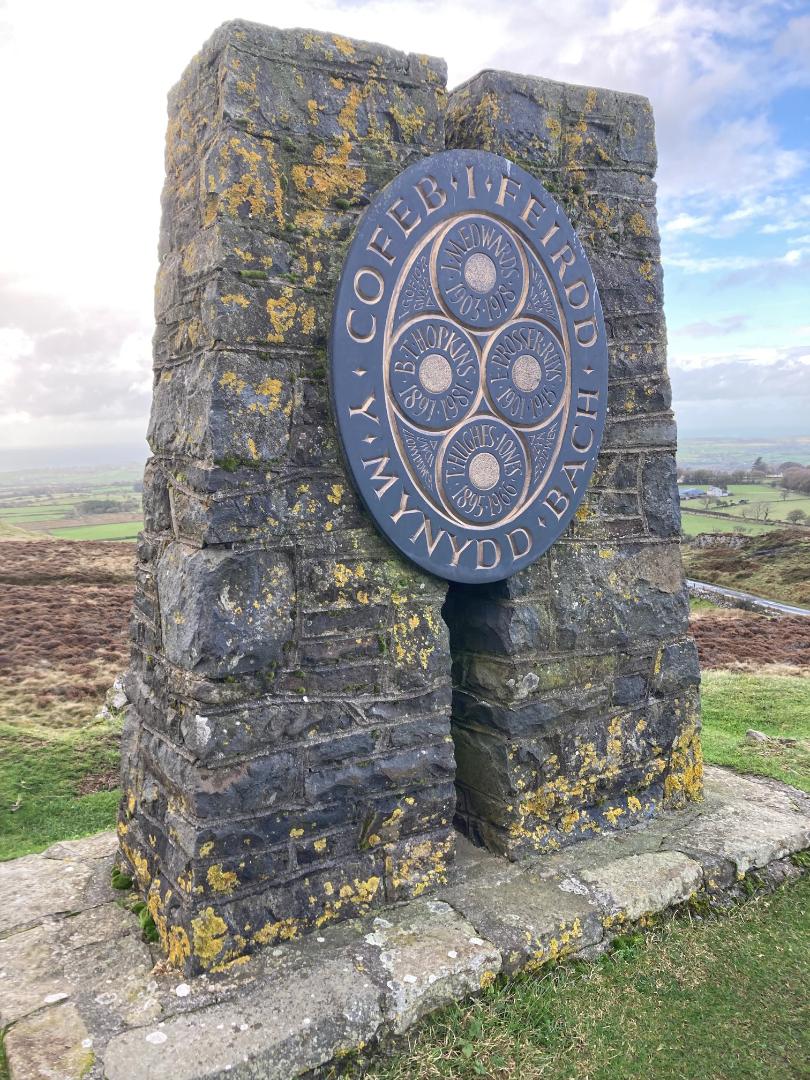Letter from Pontypool

David Llewellyn
Pontypool’s town bridge has a deceptively fascinating history. Though it looks perfectly ordinary, local folklore tells us that it was named after the rowdy parson by the name of Dafydd ap Howell, who won the right to build it following a tug-o-war contest with the Devil.
The present-day bridge dates back to August 1924, the year in which the town hosted the Royal National Eisteddfod, a major event for a town still reeling in the aftermath of the Great War, with unemployment and poverty rife.
This Eisteddfod would prove historic for several reasons, firstly the visit by Edward, Prince of Wales – soon to be Edward VIII, and the controversy which followed the crowning of journalist and poet Edward Prosser Rhys that year’s Bard, for his ode to homosexual love, Atgof (Memory).

It’s a bridge I’ve crossed countless times during my 46 years. In the years immediately following my birth at Panteg Hospital we lived in a council-owned maisonette on the nearby Rivcrside estate, while my Mum’s older sister, my Auntie Chris, lived – and still lives – on Park Road, a short distance from the Park gates and the Afon Llwyd, the river that flows from my mother’s hometown of Blaenavon down to Usk.
I’ve been crossing it more frequently in recent weeks, having moved back into my childhood home in early February.
Living in the place of your teenage years is an emotional experience. In 1996 I was assaulted at the St Luke’s Road bus stop in an attack fuelled by homophobia, one of the factors which led to me studying elsewhere, at the very liberal and open Dartington College of Arts, and later moving to Cardiff.

It was therefore a pleasant surprise to learn, from a poster in Pontypool’s indoor market that this year will mark the occasion of Torfaen Pride, the first such event to take place in the Eastern Valley, coinciding with the centenary of that most fateful year, and a chapter in my hometown’s previously unknown Queer history.
What is often called the Eastern Valley was an unusual choice of host for the Eisteddfod, with Pontypool then being in the county of Monmouthshire, which remained part of England until 1974, just 4 years before I was born.
Due to industry and decades of a de facto “Welsh Not” in our schools, Torfaen was – and still is – predominantly anglophone.
The only time we were taught in Cymraeg in both Primary and Secondary education was when learning the national anthem, usually during the Six Nations, or on St David’s Day.
Despite this, the Eisteddfod drew tens of thousands to Pontypool, including the then Prince of Wales, Edward, soon to become the short reigning King Edward VIII, which saw the new town bridge nicknamed the Prince of Wales Bridge, decades before the second Severn Crossing would be given the same name.
Born in 1901, that year’s winning poet Edward Prosser Rhys drew on recent developments in psychoanalysis in his poem Atgof (memory), an ode to past lovers, including his close companion Morris T. Williams.

On identifying homoerotic themes in the winning poem the judges were outraged, with notorious cases such as the Wilde trial and the 1889 Cleveland Street Scandal still fresh in the nation’s collective memory.
Prosser Rhys and his poem were more or less erased from the pages of history, both that of the Eisteddfod and my hometown, and Wales.

It wasn’t until 1998 that the story would be made wider known by the short film Atgof, directed by Ceri Sherlock for S4C.
The Queer history of the Eastern Valley doesn’t begin and end with Edward Prosser Rhys.
Decades later it was Pontypool’s flamboyant crusading Labour MP Leo Abse who spearheaded the parliamentary campaign to see homosexuality partly decriminalised in the years following the Wolfenden report of 1957.
In this endeavour he received substantial support from fellow MP Roy Jenkins, an alumnus of Abersychan Grammar school, which later became the comprehensive where I was a pupil from 1989-1994.
It’s now over 20 years since I first moved to Cardiff, seeking to further my writing career after graduating from Dartington College of Arts in 2000.
During my final year, in 1999 I was one of many who travelled down from the valleys to attend Cardiff’s first Pride – then called Mardi Gras – at Cooper’s Field, my first taste of the city’s gay scene.
Having moved to the city I soon became acquainted with Sgrin’s chair Berwyn Rowlands, who would later found the Iris Prize, and Ceri Sherlock, director of Atgof, who introduced me to the story of Edward Prosser Rhys and the Pontypool Eisteddfod of 1924.
Yesterday was my 46th birthday, and I’m writing this in Pontypool’s library, the library of my childhood and teenage years, once again looking forward to a landmark Pride Event, but this time much closer to home.
Torfaen Pride will take place on 1st June 2024 at Pontypool Park.
Support our Nation today
For the price of a cup of coffee a month you can help us create an independent, not-for-profit, national news service for the people of Wales, by the people of Wales.






Monmouthshire was not in England before 1974 it was considered to be both in England and in Wales hence the county motto “Utrique Fidelis” faithful to both or each. Acts of Parliament specified England and Wales or Wales and Monmouthshire. An anomaly arising out of the shiring of Wales and the Laws in Wales Act of Henry 8.
Monmouthshire was only part of the Oxford law circuit not part of England!